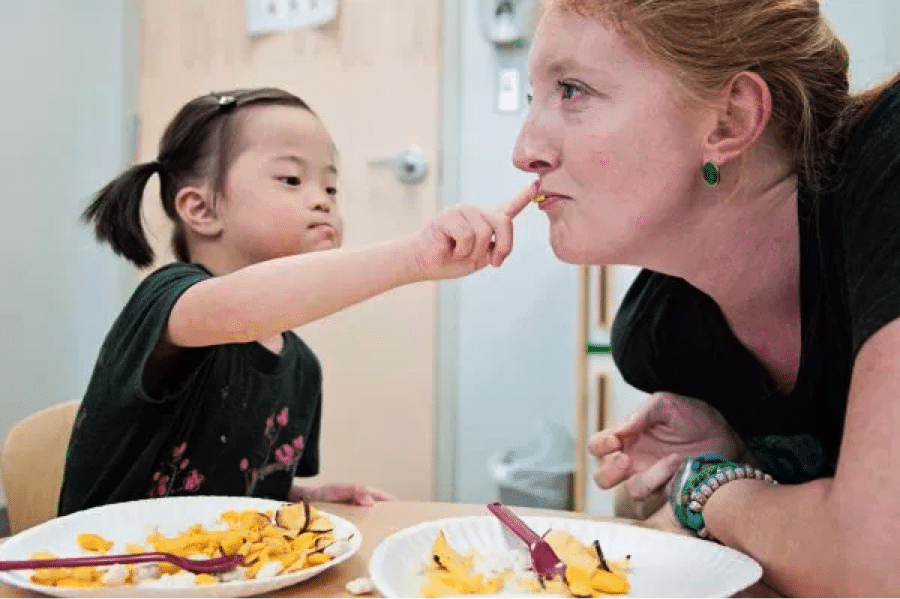Eating is an essential part of development, as our physical bodies need physical nutrition. But eating is about more than just nutrition. As Melissa Pouncey describes, “From the beginning of our lives, food means love. Our first experiences with our families involve filling our bellies—it’s how we bond with one another and how our parents learn about our needs . . . Food is how we fellowship with one another, how we socialize, and how we make some of our deepest memories.”
Because of the impact that early life has on food and eating, children from trauma often have feeding challenges. We talked with Melissa Pouncey, a speech therapist, who specializes in children from hard places and has worked closely with Lifeline in training caregivers through (un)adopted® trips. She has given us a basic understanding of feeding issues and when therapy is needed.


- What are common feeding issues for kids from trauma backgrounds?
Oral motor skills, or how your mouth moves as you eat and talk, begins at birth! The ability for your child to engage with food physically begins from the moment they’re born. Many children, both with and without a special needs diagnosis, become challenging feeders because of poor oral motor skills. So, what may look like pickiness to some may actually be a motor or sensory challenge to that child. Meeting with a speech or occupational therapist knowledgeable in oral motor skills can help in distinguishing whether this is causing issues with food.
Additionally, trauma can change a child’s emotional and control-related responses to many things in life. Many children who come from experiences of trauma may experience anxiety related to food and may eat or not eat for control over their environment. A feeding therapist may be able to help some of these concerns.
- Why is my child having a feeding issue/is a picky eater?
While many children who have trouble eating are labeled as “picky eaters”, in actuality, they have functional or sensory oral motor differences that may make eating challenging. Oral motor differences may be either genetically or environmentally caused.
Pickiness in early childhood is a part of development- children are learning to have control over their relationships and environment. For kids who have experienced trauma, the need for control and security may result in differences in eating habits that mimic pickiness.
Finally, environmental depravation and differences in stimulation may impact how a child is able and willing to approach food.
- What are some common special needs that are prone to needing help with feeding skills?
Many different types of children may have naturally poor oral motor skills. Children with a diagnosis of cerebral palsy, Down syndrome, autism, developmental delay, and many others may have unique challenges in moving food in their mouths and making sounds in imitation accurately. In addition, children with reflux or structural differences like a tongue or lip tie may struggle with comfort when eating, leading to feeding concerns.
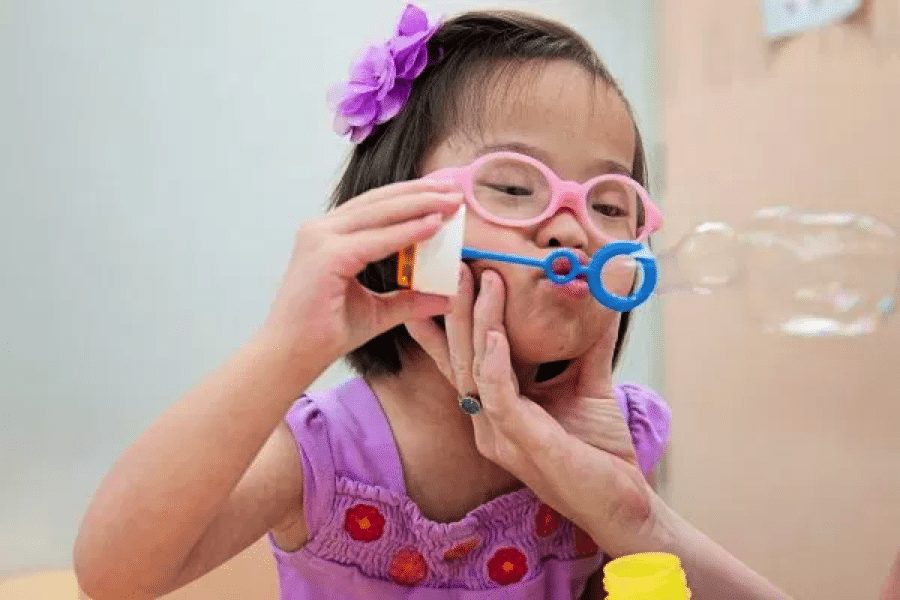

- How do I know when I need to seek professional help? At what point do we recognize that feeding issues go beyond cultural/food differences between their country of origin and the U.S.?
Pickiness and adjustment to a new food type and style are completely normal. We all have preferences, and we should! Your child should be able to engage with food in a fun, social way and should have foods that they can enjoy in all food groups. Give your child time and space but know that help is out there if you need it.
Professional help may be appropriate if you notice that your child is
- unable to chew, preferring softer or puree consistency food.
- not gaining or is losing weight.
- having difficulty in sitting together with you at the table consistently, or mealtime is an emotional challenge for you.
- frequently vomiting or spitting.
- What types of help are available to our family?
If your child is under three, you might begin with a referral to the Early Intervention program in your state. These programs are free and generally natural-environment-based, which means your child will be treated in your home or their daycare. This is the best model for a child learning to build attachment with you and their caregivers. Feeding concerns alone do not always qualify your child for this service, as it is based on a 25% delay in motor, communication, or social/ emotional concerns.
If your child is not eligible for Early Intervention due to their age, you might need a referral to outpatient speech or occupational therapy. Both sets of therapists have training in feeding.
Begin seeking out a feeding specialist with your local pediatrician, social worker, or International Adoption Clinic, whichever knows more local therapeutic resources. While other parents might be good resources as well, keep in mind that professionals like these may know more resources that are research-based and accredited.
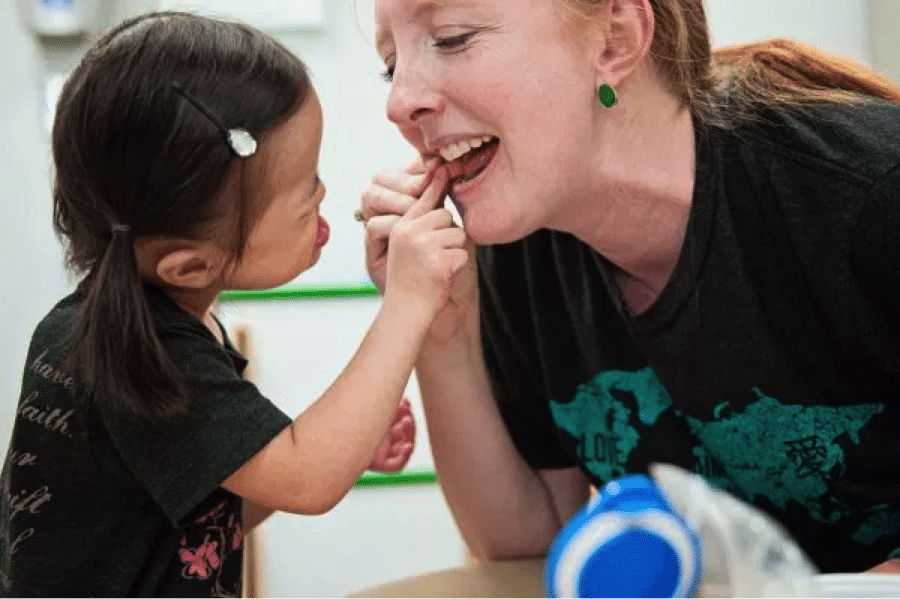

Questions you might ask your pediatrician:
- Is there any reason that my child might need some testing (like a Modified Barium Swallow) before we refer to a therapist?
- Does this clinic commonly work with feeding disorders?
- Have you ever referred a child here who has been in foster care or has been adopted?
- Does this clinic use a multi-disciplinary team approach? (meaning professionals work together to benefit each child)
- Will my insurance cover this therapy?
Once you get referral information, your gut is the best tool you have in discerning whether that professional is the right fit for your child. As one family expressed: “Bad therapy is worse than no therapy at all.” Your therapist should be working to benefit your child, so if anything is being taught that causes behaviors or emotions to escalate, you might be in the wrong clinic.
Never be afraid to be an advocate for your child – they need you to be their voice! You might use a phone call and/or an initial evaluation to build an impression of that professional.
- What should I look for in a feeding therapist?
- Ask about feeding training and certification, and especially about licensure. Be sure that the professionals you’re trusting are professionals. Speech and occupational therapists have a national and state board certification. They may also have other training specifically in feeding disorders, so ask what approaches they are trained in and do your research (potentially along with your pediatrician, if you need guidance).
- Ask general questions about approaches to feeding. Are their beliefs grounded in child-led play and sensory exploration? Professionals that are more play-based will be more compatible with a child learning to build trust and attachment.
- Ask their general thoughts on behavior, and rewards/disapproval. In general, therapy that is compatible with attachment parenting should never encourage parents to withhold attention or affection to encourage their child to eat.
- Will you be in the room with your child, and how involved will you be in therapy? Families of children learning to build trust should be very active participants in the entire process with their child.
- Ask about home planning and how involved that professional will be with carry-over at home. Will you be working together to build a plan for your family? Can other family members gradually participate in therapy so everyone is on the same page?
- Finally, a pediatric speech therapist or occupational therapist should be joyful and fun. While feeding disorders can be very serious and stressful to families, choosing a professional that puts you and your child at ease is so important. You and your family may be spending a lot of time with this person—so choose someone who wants to truly know your child and approaches them with love. Give yourself permission to make this your priority as you are selecting the right person to treat your child.
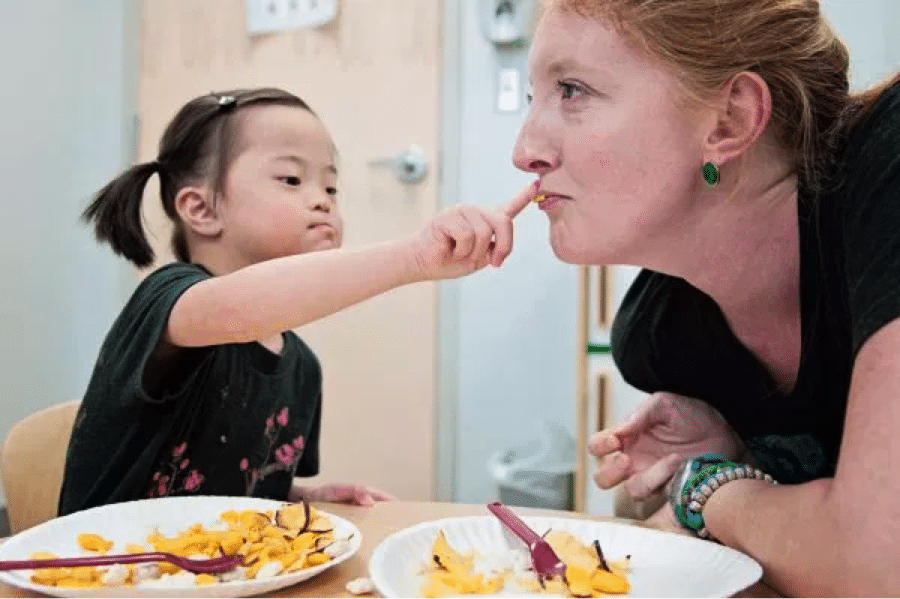

- How can therapy help?
Therapy can work to address your child’s sensory, motor, and emotional responses to food and can give you a plan for how to feed them. Therapy should always involve you as the parent and should focus on tools for feeding outside of therapy. Always be your child’s advocate and give your therapist plenty of feedback.
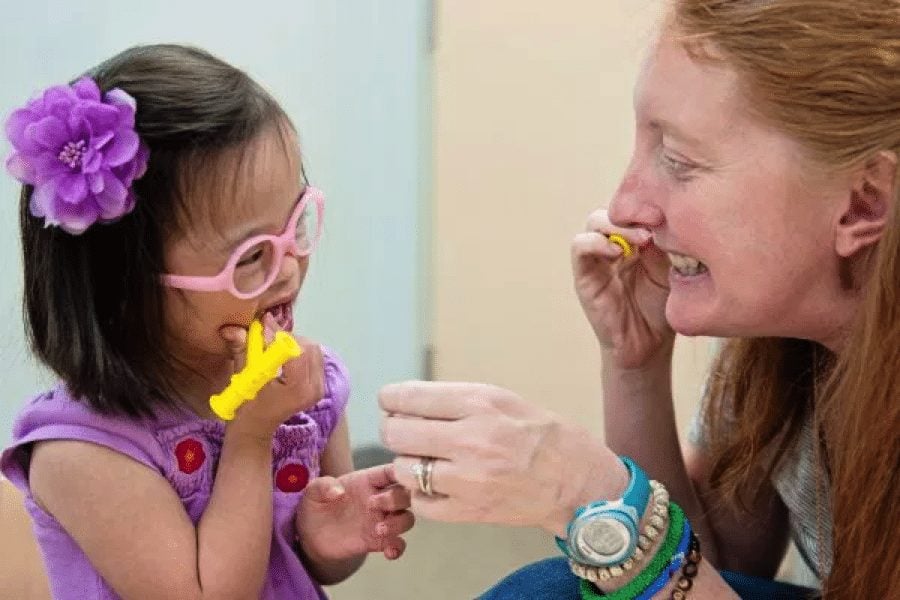

Have faith in your child and in their journey, and surround yourself with professionals and supports that can help you as you walk with them to health and joyful eating.
As you and your family journey through the years of adoption or foster care, you may find you need extra support, whether right away or in the future. If you have questions about challenges or just everyday life that your family is experiencing, please contact our Post-adoption team or our Counseling team at 205-967-0811 or email us here.
You can find further in-depth answers from Melissa’s experience with food therapy and feeding issues in her three-part blog:
Tackling Feeding Challenges: The Basics
Tackling Feeding Challenges: Oral Motor Differences and Feeding
Tackling Feeding Challenges: Feeding Therapy and Finding the Right Fit


